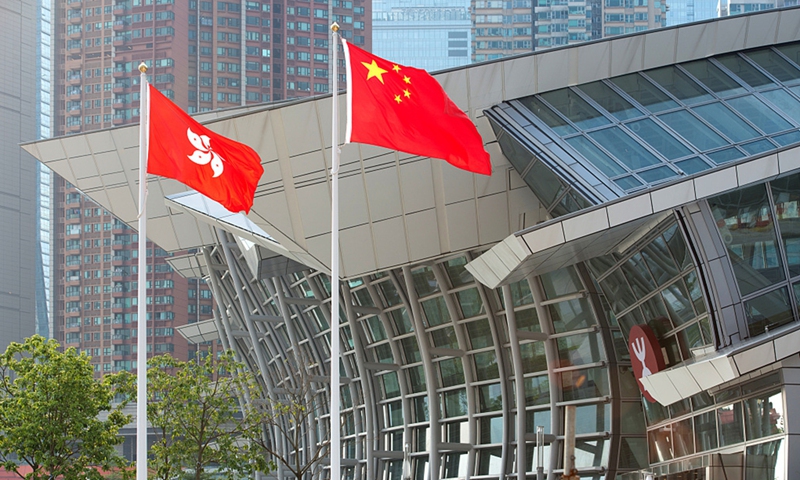
Hong Kong File photo
According to a Wall Street Journal (WSJ) report on Monday, an industry group that includes internet giants such as Google, Facebook and Twitter in a letter sent to the Hong Kong Special Administrative Region (SAR) government warned that they could stop offering their services in the city if Hong Kong authorities proceed with plans to change privacy laws.
The amendments to privacy laws were proposed following a social turmoil in 2019 during which violent protesters and those who supported them posted personal information of police officers and their family members on the internet. According to the Hong Kong government, the amendments to the privacy laws are aimed at combating crime, and would strictly define relevant violations. But the WSJ said in the report that these tech giants claimed the amendments will "have the effect of curtailing free expression" and put their staff in Hong Kong at risk, thus threatening to quit Hong Kong.
But the Asia Internet Coalition (AIC) on Tuesday responded to Hong Kong media and said that the WSJ report was incorrect. The AIC acknowledged the existence of the letter to the HKSAR government, but emphasized that the letter only expressed concerns about the amendment of privacy regulations, and no members have plans to quit Hong Kong.
This false report triggered much shock in Hong Kong, but it is hardly accidental. This fake news allows people to see some real problems and plots, and the fears it triggered have a strong context.
First, the US government has used US tech giants as a tool for its geopolitical games. It either suppresses all Chinese companies or targets several of them through "decoupling." The US tech companies have largely failed to put up strong resistance but instead followed their government's directives. Therefore, many find it possible when the Wall Street Journal reported that the three internet giants threatened to pull out of Hong Kong.
The WSJ and other US media all reported the matter, and their interpretation of the letter fits the expectations of mainstream US public opinion organizations for internet giants to participate in sanctions against Hong Kong. Politics comes first in US politics and public opinion field, reflecting their geopolitical mania. To a great extent, they are pushing the situation toward intensification and extreme.
Internet giants have gradually played the role of basic platforms. They should have been politically neutral and abide by the laws of each country and region. As two sayings go, "business is business," and "when in Rome, do as the Romans do." Such an attitude should be firm. However, for some time, US internet giants have shown more and more initiatives to achieve "political correctness." This is a worrying trend.
Internet "doxxing" targets personal privacy. It is harmful and has triggered great public outrage. The SAR government's amendments of privacy regulations have a sufficient moral foundation. But it is greatly hyped by a letter expressing concern from the AIC and an inaccurate WSJ report. This is unreasonable and unacceptable.
No matter what that letter from the AIC means, there is no doubt that justice in Hong Kong cannot be defined by American companies. Hong Kong is part of China, and China's sovereignty will not be eroded by foreign forces. Neither Google, nor Facebook, nor Twitter can cross that red line.
This incident has made people realize the huge risks of relying on US social media platforms as the infrastructure for the Internet 2.0 era. It may be hard for Hong Kong to cope with it alone, but Hong Kong is not an isolated city. It has a powerful motherland behind it.
We hope the WSJ's interpretation is just the opposite of what the three US companies actually want. But it's actually good to make some things clear. The Chinese mainland does not have access to the services of US internet giants, but Shenzhen has risen quickly in Hong Kong's spotlight to become one of the world's most dynamic cities. And there is Shanghai, which has one of the most active business and financial communities in the world.
What we want to say is, Hong Kong may be willing to maintain cooperation with all sides, but no one should try to intimidate this city which has returned to China. Those who coerce Hong Kong will ultimately prove to the world that they are not as important as people have believed.




